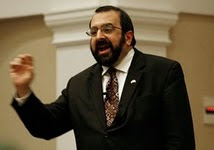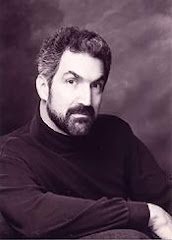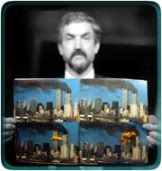What follows are notes taken during a workshop on women and Civil Society, Women and Democracy held on Tuesday 28 July 2015 at Deakin University. The event was hosted by the Deakin UNESCO Chair in partnership with the Council for Arab-Australian Relations of the Department of Foreign Affairs & Trade (DFAT).
There were four speakers in attendance:
Professor Raoudha Ben Othman, who teaches linguistics at the University of Tunis and has researched aspects of quality in higher education and published widely on it both academically and in local papers. After the Tunisian revolution, she has researched women and young people, conceptions of democracy and democratic transition.
Professor Najet Mchala, a Professor of English and critical theory at The Institut Superieur des Langues de Tunis, University of Carthage. She holds a PhD in Comparative Studies from La Sorbonne, Paris and is the head of the postgraduate program in Cross Cultural Studies. Her teaching and research interests include postmodernity and postcoloniality, Maghrebean Literature and Film.
Assistant Professor Lamia Benyoussef is based in the Department of Foreign Languages and Literatures at the University of Alabama at Birmingham. Her research interests include post-coloniality, feminist theory and African literature with a specific emphasis on the Maghreb.
Ms Ines Amri is the Founder of Organisation Volonté et Citoyenneté. She is currently the Head of Research and Project Manager of "Nsina?" (Did We Forget?), a documentary funded by Columbia University and Bosch Foundation through which she seeks to create a platform of dialogue where dealing with the Past 55 years of oppression is at the core of the national debate and to launch a participatory action research project with the victims and their families in Tunisia.
The panel was chaired by
Professor Fethi Mansouri of Deakin University.
I can't pretend that these notes represent everything that was said and/or with any great accuracy given that they were originally hand-written. Anyway, here goes.
[01] Epistemological tools involve the gathering, identification and use of evidence and argument for social scientists. How we use them and the outcomes we come up with can be affected by our own ideological leanings and other subjective factors.
[02] How do we understand revolutions and other forms of social change? What are the methodological aspects? How do we gather evidence? How do we assess it?
[03] One way is through using micro-narratives i.e. history from below. Gathering information and stories from voices that are otherwise suppressed.
[04] In many Muslim societies, there is the tension between being a citizen and a believer, largely due to the existence of transnational loyalties. Of course, this isn’t limited to people who identify as Muslims.
[05] Why must the honour of a community be grafted onto the female body in many Muslim cultures? Shouldn't men also take ownership of honour for themselves?
[06] How did Tunisia get to a stage where its you couldn't make meaning anywhere except in committing suicide? Why did that have to be Tunisia's revolutionary moment?
[07] Social scientists in Tunisia looked around themselves at social interactions to kane sense of the revolution. But they were seeking to understand a reality that, far from being static, was evolving and is still doing so.
[08] One speaker said she kept a diary very strictly. She found her diary entries to be very reflexive and descriptive. Still, it wasn't meant to be an academic treatise.
[09] Thanks to the relatively favourable and thorough attention the Revolution received in the English-language media, Tunisians strengthened their relationship with the language and its speakers. Many scholars continue to focus on communication in Arabic and French.
[10] The Tunisian media is more free than it has ever been since independence. The rhythm of news in Tunisia is very fast, and existing outlets have no indigenous model to follow.
[11] One important piece of work is gathering the testimonies of people who were imprisoned for many years for political "crimes".
[12] The elites in Tunisia frequently lived their lives as if they were separated from the suffering of other Tunisians. Some still like to enjoy artificial shields.
[13] Tunisian society is still characterised by strains of paranoia about outside powers and sinister forces inside.
[14] Plenty of psychological violence is caused by often well-meaning but stupid comments by outside observers who insist on seeing Tunisia as Muslim and only Muslim. Euro-centric paradigms abound even in the most allegedly respectable Western publications.
[15] Your opinion as a social scientist or as any observer is affected by your position (or positionality if you wish to sound impressive). This is your ppersnal location and includes race, gender, where you live etc.
[16] An old Tunisian proverb:
Don't spit on the past.
Don't cut yourself off radically from your roots. Tunisians are hopeful their revolution keeps to this precept.
[17] Islamists are regarded on the "Right" of the political spectrum. As in many Arab countries, the Islamists were used to counter the "Left" when
the Bourghiba regime came under US influence.
[18] Women were at the forefront of Tunisian revolutionary demonstrations and marches. It was a common joke that the men used the women to shield them from the police.
[19] In a sense, Tunisia is both Islamist and secular. But its essence is democratic.
[20] Youth apathy is a global problem. In Tunisia, young people complain about politics and leaders but generally keep away from parties.
[21] The whole region is experiencing a reversal of the Arab Spring process. How Tunisia has survived its democratic experiment is almost a miracle.
Lamia Benyoussef observed:
When I first went to the United States, I was shocked at how overtly religious the people were. When I grew up in Tunisia, we did study religion in school. But it was always personal.
Which may explain why American reporters are so obsessed with religious explanations for everything in the "Muslim world"!




















